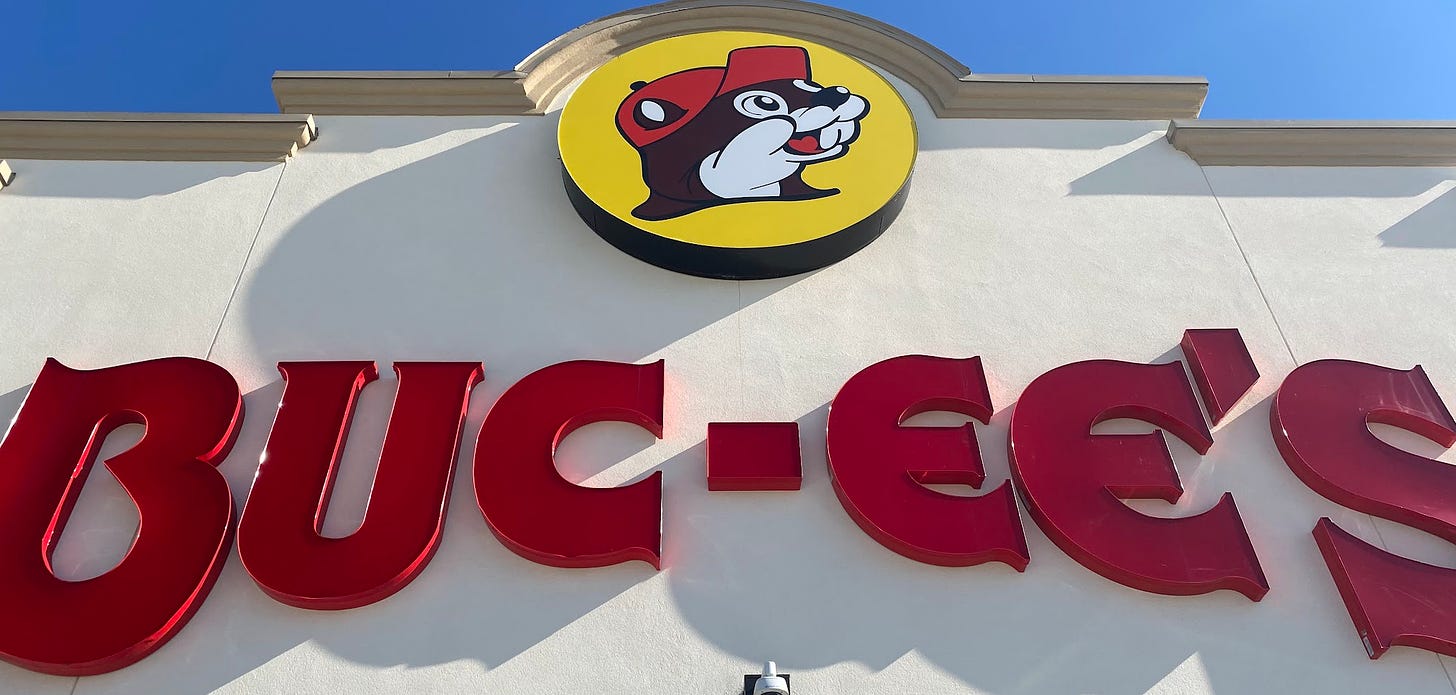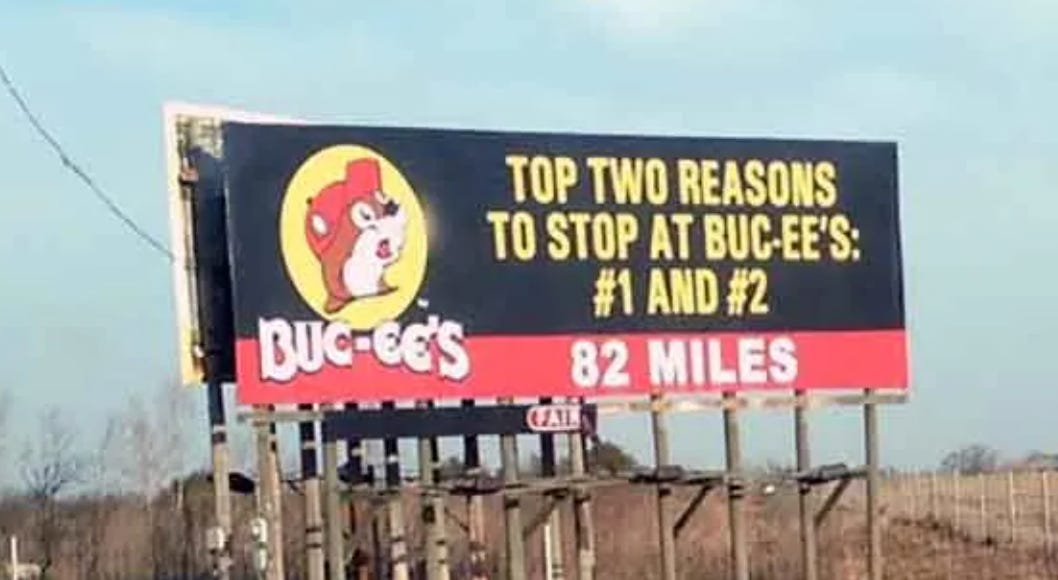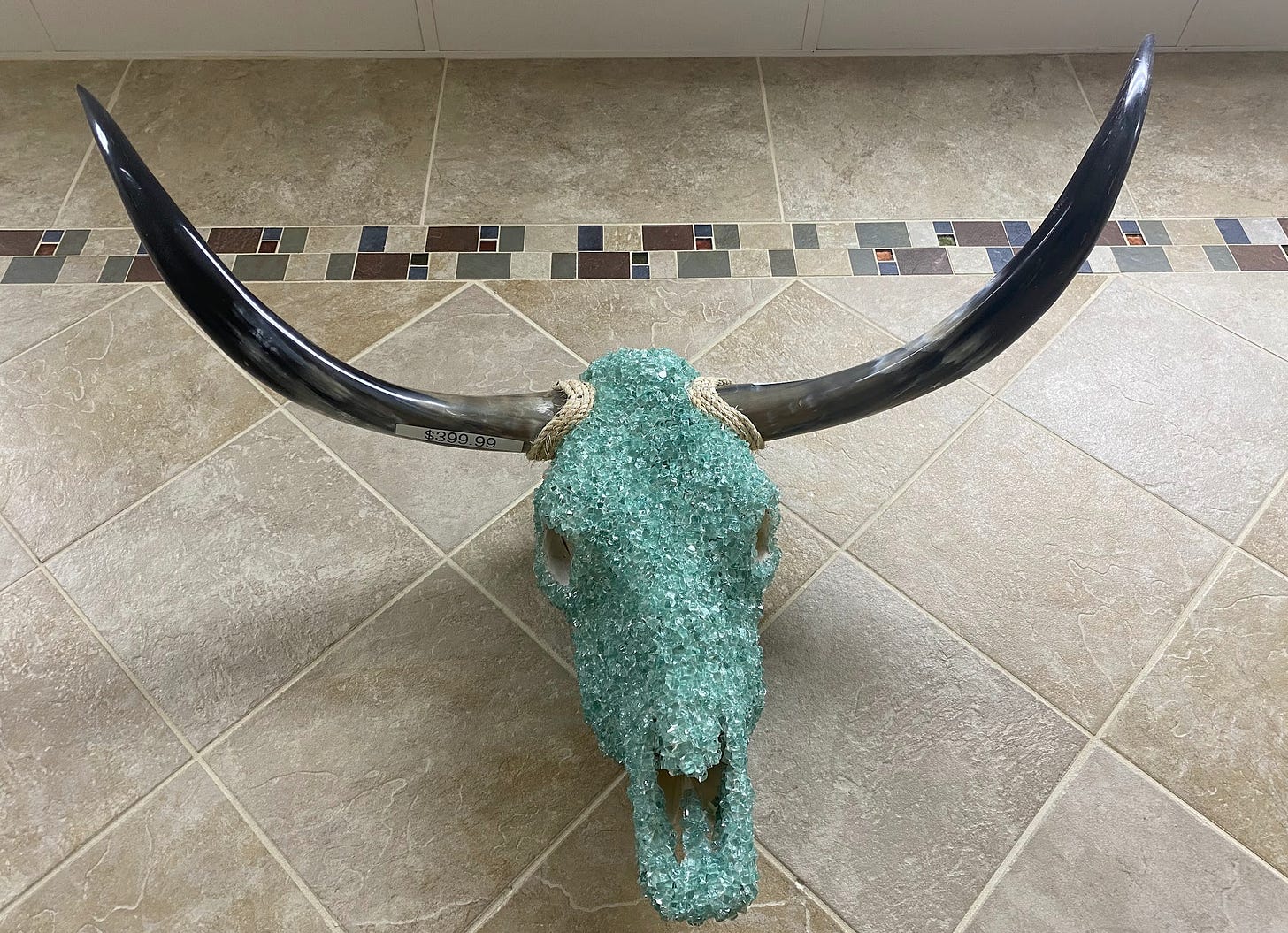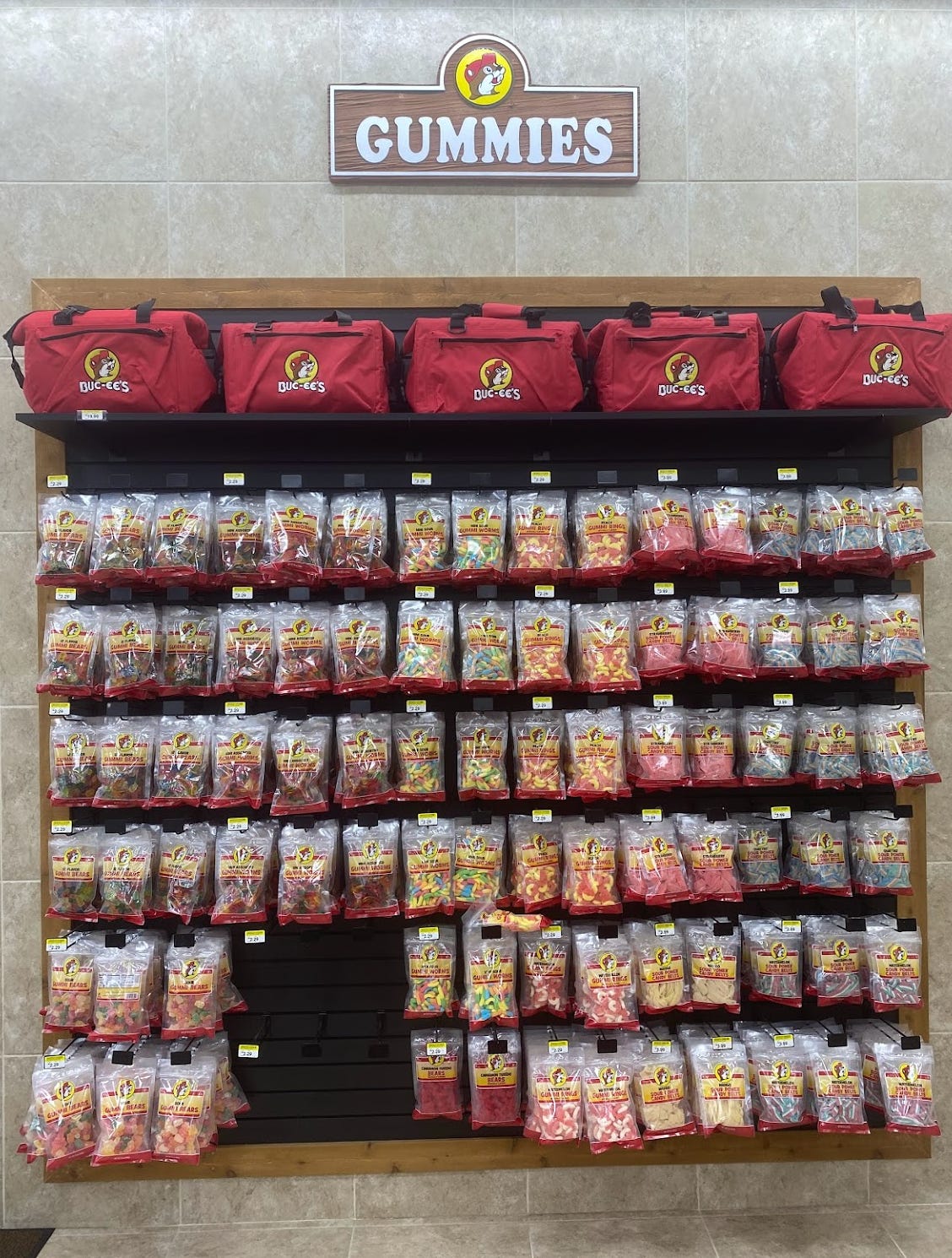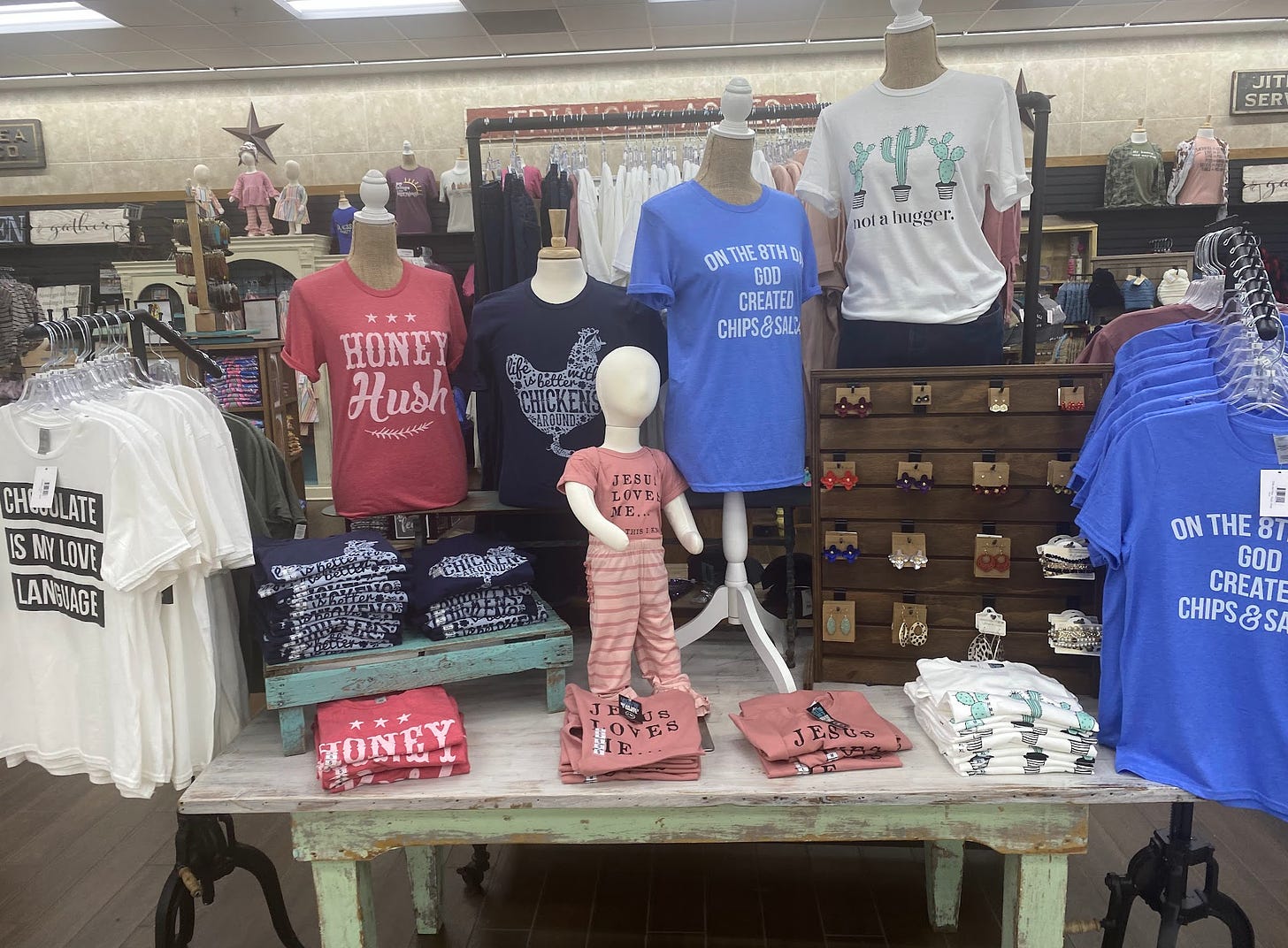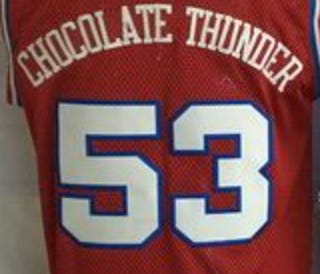Welcome to Flashlight & A Biscuit, my Southern culture offshoot of my work at Yahoo Sports. Thanks for reading, and if you’re new around here, why not subscribe? It’s free and all.
Back in the early 1990s, what would become the English Premier League was merely a collection of neighborhood soccer — sorry, “football” — clubs, good mainly for corralling the drunken menfolk of the local township in one area for a few hours. Today, the Premier League is the world’s dominant sporting organization, a multi-multi-billion-dollar entertainment and merchandising behemoth that’s the playground of tech billionaires and petrochemical sheikhs.
How’d they launch into orbit? Simple. Clean toilets.
See, back in the olden days, in the era of the Spice Girls and “Trainspotting,” “bathrooms” at English stadiums were little more than troughs and trenches in the ground. (This was for the men’s rooms. It is entirely possible there were no dedicated ladies’ rooms at all, given the demographic makeup of football fandom at the time.) Plus, halftimes were 10 minutes. The incentive, then, was to just relieve yourself anywhere you could, and the result was a stench so foul that it could debone a bird in flight.
But one visionary executive — a co-owner of Arsenal, fella by the name of David Dein — had an epiphany while at a Miami Dolphins game. He hit upon a truth that’s obvious in retrospect, utterly unrealized at the time: if you clean up the damn bathrooms, you clean up your entire operation.
If you’ve driven the interstates of the South in the last few years, you’ve surely noticed the sharp uptick in Buc-ee’s-related signage: the cheerful, glazed-eye beaver and the catchy one-liners that are just a tetch too earthy for a small-town church sign. They beckon you to an oasis of gasoline and jerky, a wonderland of merch and energy drinks, where Beaver Nuggets rain down from the heavens. Buc-ee’s, the Texas-based fuel stop nirvana, is the future of America, with all the promise and terror that phrase implies.
There are two kinds of people: those who have never been to Buc-ees, and those who are currently in a Buc-ees right this moment — possibly lost, possibly waiting in line for barbecue, possibly just enjoying some peace and quiet in one of those clean Buc-ees bathrooms.
Because make no mistake: just like in the Premier League, the clean bathrooms at Buc-ees are a HUGE selling point. I won’t post a picture of the Buc-ees bathrooms, because I won’t take a picture in a Buc-ees bathroom — that seems like a fast track to an ass-whipping, an arrest by a small-town cop, or both — but trust me when I tell you that the bathrooms are immaculate. We’re all familiar with gas station bathrooms that look like they’ve been the site of ritual sacrifice or involuntary organ donation. You can go into a Buc-ees bathroom and not feel like you’re going to be using the facilities next to at least two of the Four Horsemen of the Apocalypse.
Clean bathrooms are only part of the allure of Buc-ees, though. There are entire walls of jerky and gummies, a bakery the size of an airplane hangar, a barbecue island that infuses the entire store with a sweet honey-smoke scent. It’s everything you want, everything you could possibly want, everything you didn’t know you wanted, and everything you’ll one day want. You want a look at post-pandemic American paradise, look right in the cold eyes of Bucky the Beaver.
Buc-ees is a living testament to the old George Burns line about sincerity: If you can fake that, you’ve got it made. It’s far more authentic than the kitschy old bicycles-on-the-wall style of Applebee’s/Friday’s/Chili’s restaurants. It’s got a rougher edge than the sleek, just-painted faux-purity of Walt Disney World’s Main Street. In a way, it’s not unlike Augusta National, where the manufactured aesthetic is perfectly pitched at a level just below your conscious awareness. You don’t notice there are no squirrels or birds at Augusta until someone tells you, and you don’t even think about how literally everything at Buc-ees is emblazoned with the image of that vacant-eyed beaver until you look around and realize he’s everywhere.
This is what I believe makes Buc-ees so phenomenally popular: it’s close enough to authentic to give you a sense of connectedness to a greater whole, without the messy realities (and odors) of actual authenticity. It’s curated kitsch, right down to the array of homey sayings (“When life hands you lemons … grab the vodka and call the girls!”) helpfully pre-printed on t-shirts and hand towels.
The future isn’t gleaming spaceships and rocket-powered jet packs. It’s plausibly charred barbecue and mass-produced “Bless this Mess” signs that kinda sorta look like something your grandmother would’ve owned. The nostalgia is prepackaged for your convenience!
Look, there’s nothing inherently wrong with appreciating Buc-ees, any more than there’s nothing inherently wrong with enjoying radio-friendly pop music or network comedies. It’s safe and comfortable and convenient, and lord knows we could use truckloads of all three right about now. The trick is to use Buc-ees as a refueling stop, not a destination.
I’m headed to Tuscaloosa next week, and you can bet your Beaver Nuggets I’ll be stopping at the Buc-ees in Leeds, Alabama — exit 140 off Interstate 20, you can’t miss it — both coming and going. And I’ll think of y’all, my dear readers, when I visit the ultra-clean bathrooms. Wait, that came out way wrong …
This has been issue #53 of Flashlight & A Biscuit. Check out all the past issues right here. Feel free to email me with your thoughts, tips and advice. If you’re new around here, check out some of our recent hits:
What it was like to cover the Beijing Olympics inside a locked-down China
How Richard Petty learned that Daddy won’t always let you win
The joy of a really terrible Southern accent
If you dig this newsletter, share it with your friends. Invite others to the party, everyone’s welcome.



